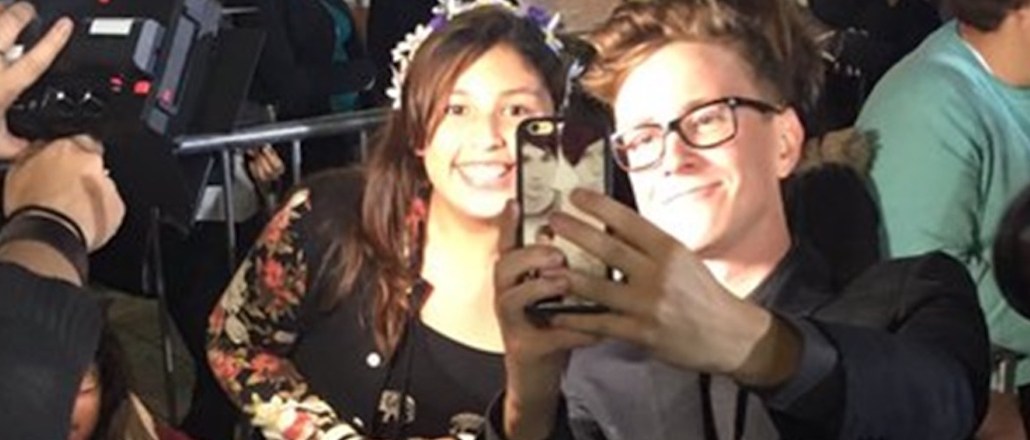Inside the murky world of social media influencer talent representation

Scott Fisher, who runs an agency that represents social media influencers, recently received an email from a brand client with some disconcerting news: One of the bigger social media influencers on his roster is listed by three different influencer technology platforms in their pitch deck.
“We found lots of instances that influencer technology platforms are pitching our talent as ‘they have access to,’ but that’s a misleading phrase because they don’t have a business contract with us,” said Fisher, partner at Select Management Group. “We asked them to remove our influencers.”
Influencer marketing is slated to become a $5 billion to $10 billion market over the next five years. To meet brands’ growing demand for influencers, a flurry of vendors are popping up touting technology that can connect advertisers with a large number of social stars with a few clicks. For example, NeoReach claims users can search through more than 3 million influencers. But these companies may be overstating the nature of their relationships with these influencers, most of whom are only loosely represented by vendors under non-exclusive agreements.
“Nobody has exclusivity in this industry,” said Holly Pavlika, svp of marketing and content for influencer marketing company Collective Bias. “Some companies say that they have millions of influencers, but most are not active.”
Pavlika explained that her company is working with around 8,000 influencers to “balance the supply and demand.” Her team recruits those individuals mainly through referrals, and they always have a waiting list. (Who doesn’t want to become an influencer nowadays?) She rarely works with talent agencies, which tend to take a big cut, unless the client is looking for a specific influencer who is not in the network. Her company is focused on influencers with less than 100,000 followers.
For example, its mommy blogger Stephanie Pass (@tiptoefairy) — who has 8,623 followers on Instagram and 15,755 fans on Facebook — wrote on her own blog a long-form post “DIY Sidewalk Foam Paint” for Huggies Wipes this past May. The article has received 2,320 Facebook shares and 135,000 pins on Pinterest to date, according to Collective Bias.
“Talent agencies usually represent celebrity-style influencers with millions of followers, but we are working with power middle ones,” she said. “Once an influencer passes 100,000 followers, their performance decreases at an increasing rate.”
But that doesn’t mean technology platforms aren’t collaborating with talent agencies. Viral Nation, a talent agency that manages around 300 influencers, allows five technology platforms — including Izea and Twitter-owned Niche — to list its influencers. The company charges those companies on a campaign basis, but it declines to disclose the exact number.
“When you represent so many influencers, you want to give them as much media exposure as possible,” said Joe Gagliese, co-founder and managing partner for Viral Nation. “Of course, we constantly have our lawyer send letters to those who don’t have our permission, asking them to remove our influencers.”
Jennifer Li, CEO for influencer technology company MuseFind, added that many influencers who are up and coming are using the platform on their own anyway, without their agent knowing it, because they are eager to spread themselves out.
“I think the question is, does a platform need to have a one-on-one relationship? It’s like when everyone uses an iPhone, they don’t need a personal relationship with Tim Cook,” said Li. “Talent agencies are taking a manual approach. As a platform, our job is to accelerate the process and scale. If you are in B2B, you work with a talent agency; if you are in B2C, you work with a platform.”
A one-on-one relationship might not be a requirement, but the way some technology platforms advertise themselves is misleading. And agencies are looking for a closer relationship between platforms and influencers, either via agents or direct contacts. As Mike Dossett, manager of digital strategy for agency RPA, recently told Digiday, the looser the formal connection between the vendor and the influencer, the bumpier the process is. As a result, an algorithm-driven approach could become incredibly time-consuming for the agency, brand, vendor and influencer.
More in Marketing

WTF are tokens?
When someone sends a prompt or receives a response, the system breaks language into small segments. These fragments are tokens.

AI is changing how retailers select tech partners
The quick rise of artificial intelligence-powered tools has reshaped retailers’ process of selecting technology partners for anything from marketing to supply chain to merchandising.

YouTube’s upmarket TV push still runs on mid-funnel DNA
YouTube is balancing wanting to be premium TV, the short-form powerhouse and a creator economy engine all at once.





